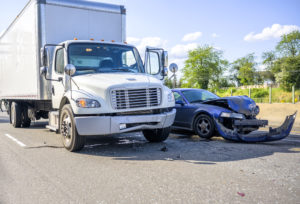 Car accident insurance policies can be confusing. Many people struggle with the technical language, filled with unfamiliar terms that often cause misunderstandings. Knowing what your policy covers—and what it doesn’t—can make a big difference when you file a claim after an accident. Understanding these details can help you protect yourself and handle tough situations more confidently.
Car accident insurance policies can be confusing. Many people struggle with the technical language, filled with unfamiliar terms that often cause misunderstandings. Knowing what your policy covers—and what it doesn’t—can make a big difference when you file a claim after an accident. Understanding these details can help you protect yourself and handle tough situations more confidently.
Reading your insurance documents carefully can help you make sense of the terms. For example, knowing the difference between liability coverage, collision coverage, and exclusions can help you better understand your policy. Some rules and limitations may not be obvious at first glance, but being aware of these details can make dealing with claims much easier. Consulting a car accident lawyer provides valuable support when handling disputes with insurers, helping you feel more in control after an accident.
Key Insurance Terms Explained
Getting familiar with common insurance terms can make it easier to understand your car accident policy. For instance, “liability coverage” explains who is responsible for damages when an accident happens, usually covering claims made by others. In contrast, “collision coverage” applies to damage to your own vehicle, no matter who caused the accident. Each type of coverage affects your financial responsibilities differently after an accident.
It’s also important to identify exclusions and limitations in your policy. For instance, some policies may not cover specific vehicle types or particular situations. Recognizing these exclusions early can help you avoid unexpected issues later.
Uncovering Hidden Clauses in Policies
Car accident insurance policies often include clauses that can impact claims in unexpected ways. For instance, restrictions might apply to accidents during bad weather or if the driver is unlicensed, leaving you without coverage. These details might not be obvious, but they can make or break a claim.
Another factor to watch for is subrogation rights. If your insurance company pays for your damages, they might seek reimbursement from the at-fault party later. Knowing how this process works can help you handle claims more effectively. Also, don’t miss important reporting and filing deadlines in your policy—mark these dates on your calendar to stay organized and avoid issues.
Steps to Evaluate Coverage Levels Before Filing
Making sure your coverage is adequate is vital when dealing with potential claims. Before filing, check if your policy covers situations like accidents involving uninsured or underinsured drivers. Even policies that seem broad might have gaps, which can leave you financially vulnerable if another driver’s coverage falls short.
Medical payment coverage and personal injury protection handle post-accident expenses differently. Medical payment coverage usually pays for medical bills, while personal injury protection can cover additional costs like lost wages. Reviewing these options helps you understand your current coverage and decide if you need adjustments.
Dealing with Claim Denials
After an accident, dealing with claim denials can be frustrating. Insurance companies often use vague language in policies to interpret terms in their favor. This ambiguity can make it harder for you to argue your case and get the compensation you deserve.
Common issues like reporting delays or incomplete documentation also lead to denials. Insurers may use these gaps as reasons to reject claims. To avoid this, keep accurate records of all communications and document the damages right after the accident. A detailed timeline and organized evidence can strengthen your case and improve your chances of success.
Practical Tips for Leveraging Your Policy in a Dispute
Preparation is key when disputing claims. Gather strong evidence, such as photos, witness statements, and repair estimates, to support your position. Clear documentation shows how your case aligns with the terms of your policy and can help counter resistance from insurers.
If your claim is denied, don’t worry. Call your insurer and ask for a detailed explanation of why it was denied. Then, request a review of your case and clarify any unclear points. If the issue persists, consult a lawyer specializing in insurance disputes. They can guide you through options like arbitration or legal action, which might be necessary depending on the denial’s specifics.
Dealing with car accident insurance policies can be confusing, but knowing your coverage is key to protecting yourself after an accident. Learn important terms like liability and collision coverage, and watch for exclusions or hidden rules that could affect your claim. Before filing, check your policy for gaps, like missing coverage for uninsured drivers, and make changes if needed. After an accident, keep detailed records to avoid claim denials caused by missing information or missed deadlines. If your claim is denied, gather evidence, ask for clear explanations, and get help from an expert if needed to resolve the issue.


